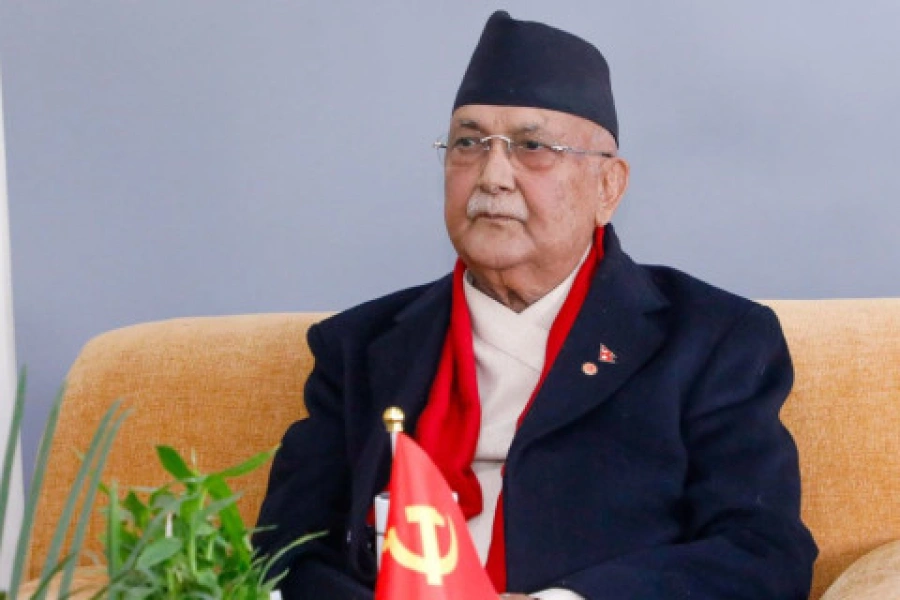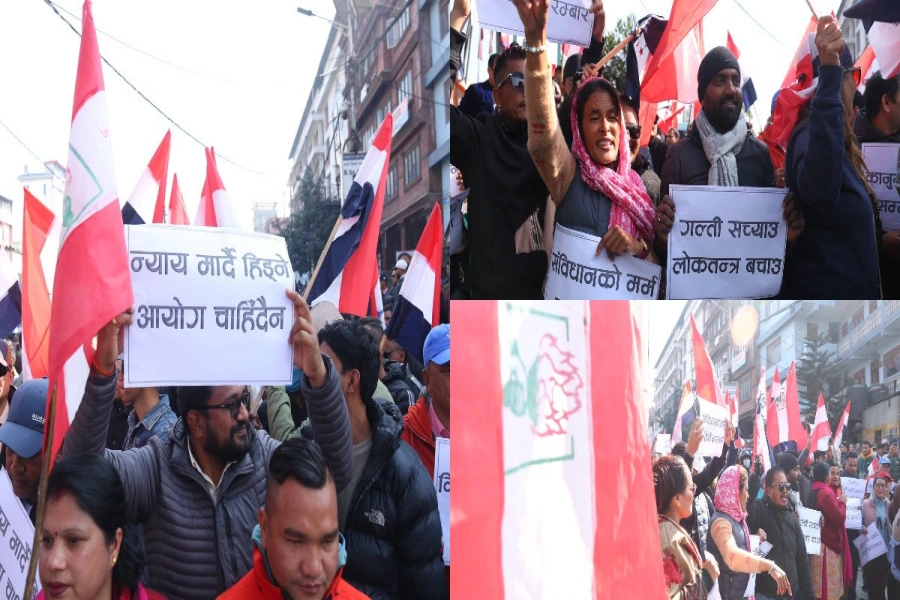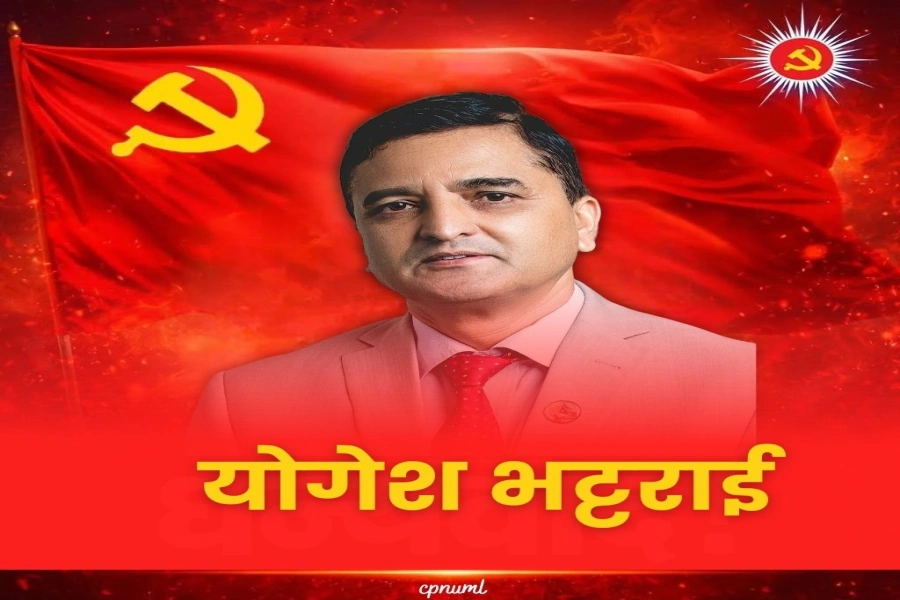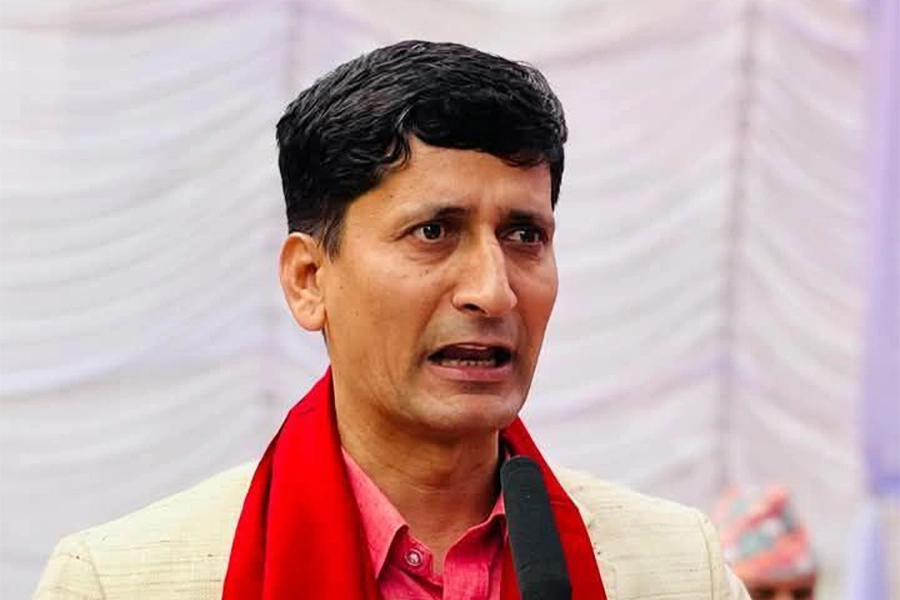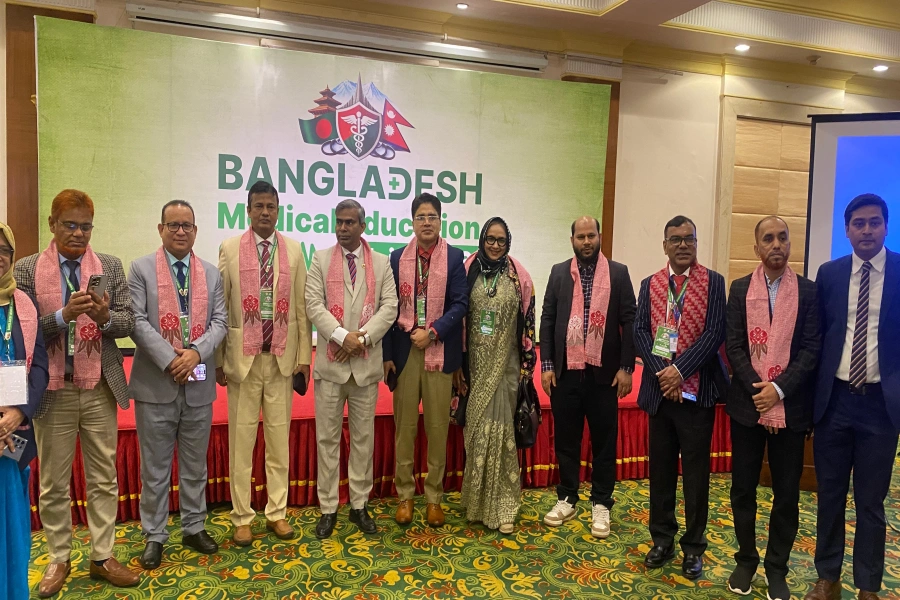As Nepal has adopted a federal system of government, the country needs to redefine its foreign policy according to the changing scenario. Nepal has to determine its foreign policy considering geneses like history, geography, culture, economy, politics, demography, language, religion and military capability. Ever since Nepal has adopted the strategy of "yam between the two boulders", this unique geo-strategic location has shaped and guided the country's foreign policy.Currently, Nepal has been conducting foreign policy at three levels. At the bilateral level, maintaining and transforming historic friendly relation with its immediate neighbors, China and India, to a new level of trust and confidence in context of security resolution, social, economic and political co-operation are major factors. The relation between Nepal and India is highly complex with many disputing and complementary issues such as common civilization, open borders, shared environmental zone, cross-border migration and terrorism. Just opposite, the relation with China is mainly kept to formal level in which efforts are confined to strengthen multi-sectoral people-to-people relations through the academic and cultural exchange, enhanced infrastructure like transport, electricity, and communication. At the regional level, Nepal's foreign policy is directed towards maintaining good relations among member nations of SAARC, BIMSTEC, BAO forum etc. to acquire motive of collective self-reliance. At the global level, Nepal can act as the leader of least-developed, land-locked and small countries by strongly opposing illegitimate intervention in internal affairs by bigger nations to foster peace-building role among these small and weak nations.
The most important thing that Nepal has to think while defining foreign policy objectives, is the strength and size of its economy and military power to that of its giant immediate neighbors, China and India.Since the external trade and military power is negligible compared to India and China, Nepalese diplomats cannot set military option and economic strategy for national security as the last resort. Therefore, Nepal needs to maintain and develop balanced, pleasant, co-operative and equi-proximate relations with these densely populous neighbors which follow different political ideologies.
With a proper assessment of nation's strengths and weakness, the foreign policy should be devised. The responsibility of defining foreign policy lies in determined professional diplomats and diplomats from political appointees.The effectiveness of foreign policy relies on capability, creativity and credibility of such diplomats. Until internal conflict exists and weak leadership continues to govern, external intervention in national affairs cannot be detached.As time passes by, the world's socio-economic and political conditions, people's thought and lifestyles and technology get changed. So, timely changes in foreign policy are must in order to safeguard national interests, sovereignty and territorial integrity.
Experts advise Nepal to have a clear, proactive foreign policy

The five principles of peaceful existence (Panchasheel) seems to be the strong basis of foreign policy in Nepal. In addition, the ideas enshrined in the UN Charter, the Principles of non-alignment, world peace, international law and regional arrangement can be taken as parameters in defining foreign policy. Moreover, human rights, pluralism, freedom, economic and development diplomacy should be given emphasis to country's foreign policy.
The domestic policy and foreign policy are linked up influencing each other. Foreign policy is regarded as the reflection and complimentary of the domestic policy which is determined by internal situations and necessities. So, the foreign policy cannot be viewed as isolated and distinct from the domestic policy.The nation is independent if it is economically independent. Similarly, the nation is sovereign only if it has the ability to solve its problem at its own discretion. But, Nepal has been facing challenges on its independence and sovereignty time to time by the frequent political transformation and economic realities.In the present situation, Nepal has been exporting its manpower to Arab Gulf countries and east and south-east countries such as Korea, Japan, Malaysia and Singapore which is not the good indicator of the development of a nation.
So far, Nepal has been able to maintain its uninterrupted existence, independence and territorial integrity ever since it is established as a sovereign nation-state. Like all other policies, foreign policy is also based on political dispositions, worldview and interest of leaders as well as socio-economic priorities. Foreign policy should be guided by permanent or long-term national interest, not by short-term political goals. If the political leadership and professional diplomats are incapable of making a realistic assessment of nation's weakness and strength, the things become more complicated and nations move toward disasters.The various code of conduct to deal with foreign diplomats should be defined by categorizing missions as strategic functions and representational.Diplomatic missions should be mobilized to attract FDI and promote economic activities through the involvement of apex private sectors like FNCCI, CNI and other trade and tourism-related organizations. All the mainstream political parties need to show unity and uniformity on the basic issues like foreign policy and international relations. Nepal should explore all the avenue of all comparative advantages in a diplomatic way as varieties of challenges and opportunities have increased after the emergence of liberalization and globalization. Nepal should move concrete steps on expanding Chinese Railway line from Lhasa to Nepal, develop SAARC highway, SAARC railways, SAARC river ways and open civil aviation link by making open sky policy that helps to overcome challenges of its land-locked status to land-linked, water-linked and sky-linked.If possible, Nepal should take initiation for constructing a common regional power grid line and gas pipelines.Fulfilling international commitments and maintaining good governance, Nepal can ensure sustainable development through protection of freedom, peace, harmony, justice and co-operative ties with other nations.With appropriate foreign policy, Nepal, although small and relatively weak nation compared to its immediate neighbors China and India, can survive holding its head high by taking several benefits.
The engagement of sub-national government provinces or cities in international relation and foreign policy occurs widely and has recently received considerable attention from scholars. Each province will be looking forward to form an international economic cooperation and political interaction. The decentralized province will be a key role player in the international arena, the major question will be how the province functions, will they be able fully to provide welfare and meet the human needs in general. Thus, the satisfaction of human needs is the main objectives associated with shaping the federal system.
Undoubtedly, foreign policy is the result of decisions taken by actors and everything that takes place in the domestic or internal sphere can be included in term ‘foreign policy’ decision making.
Foreign policy for province can be shaped by domestic and international settings both acting as a bridge between these settings non-governmental organizations, international organizations and financial markets. Nevertheless, the economic growth and development are one of the reasons for Sub-national government engagement in the international arena.
The SNGs devise policies and strategies to promote export and attract foreign direct investment (FDI) and attract technology for modernization and rapid growth of the province. Some SNGs will promote themselves as tourists destination that will be a major source of revenue generation which later can be invested in other development activities or can lend to other needed province.
Once the government will be declared then the topmost priority should be given to formulating the regional and foreign policy that will give the idea to shape the nations for its benefits and its people. Otherwise, the federal government has to bear the public resentment.



